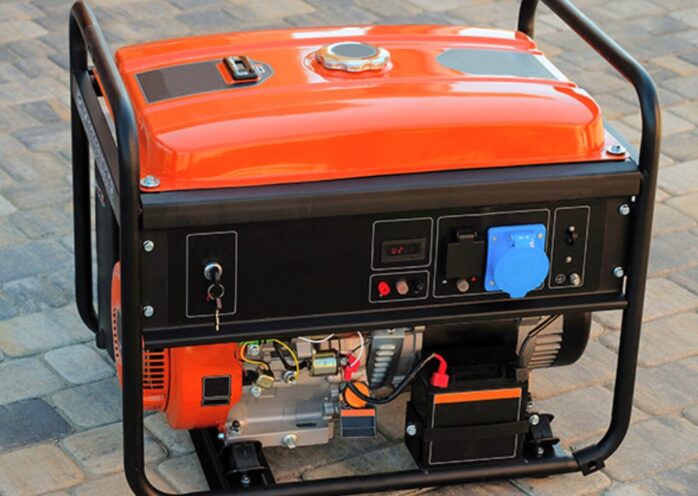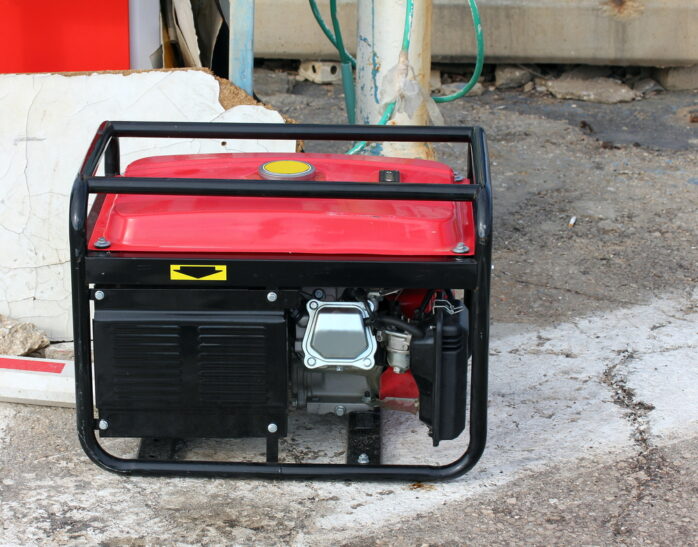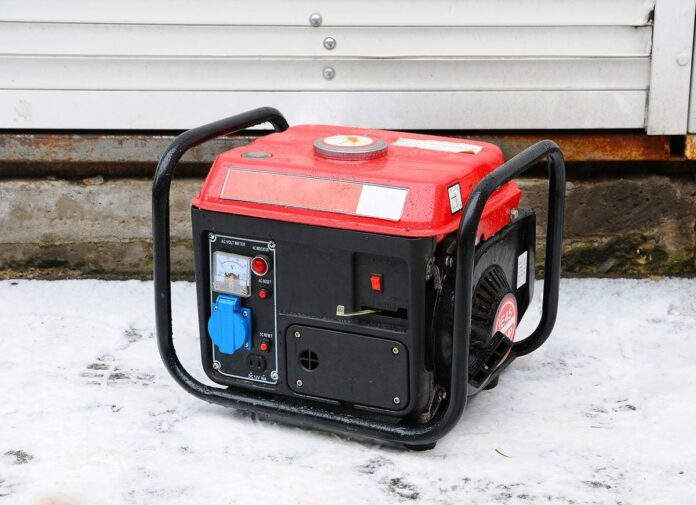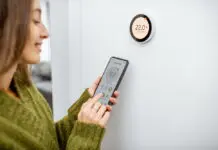Portable generators are powerful tools that can be used for a variety of purposes. They allow you to get the power you need outside, whether you are camping, at a tailgate, or in your backyard. But what about using one inside your home?
Technically, yes. Portable generators can be safely used within your home. Whether you are running a business or just powering a few lights in your home, portable generators are an effective way to ensure you have the power you need when you need it. If you are curious about how to use a portable generator at home, keep reading this article.
Can you power your whole home with a portable generator?

If you are looking for a way to power your home that doesn’t involve paying for electricity, a portable generator might seem like the perfect solution. But before you start shopping for one, you will need to know what it can and can’t offer you.
While it is possible to buy a large enough portable generator to provide full-home power, it’s also very costly. Most homes require at least 5,000 watts of continuous power to keep essential appliances going, which would put the price tag on a portable unit in the $3,500 range. You could always go with a less expensive model, but then the unit will only be able to supply power to a single appliance at a time.
Running your home with a portable generator can be a huge help in an emergency. Avail yourself of the best quality portable generator and other power products like power stations, generators, solar panels, and batteries at the most affordable rates in the market.
You can use a portable generator to power just some of the devices and appliances in your home. It all depends on how much power you need, what kinds of appliances you want to run, and how long you want to be able to do so.
Everyone can power their entire home with a portable generator if your home happens to be very small or you plan on running just a few necessary appliances. Naturally, the more power you need and the longer you want to be able to use it, the bigger your generator will need to be.
However, there are certain ways you can use a portable generator to make your life easier and even save money in the long run when it comes to powering your home. They usually have a small tank for fuel and a motor, which can be electric or gas-powered. When using a portable generator, always make sure it is properly grounded and that it is not plugged into an outlet that is live.
One thing that is important is that generators are not used indoors. They produce carbon monoxide, which is extremely dangerous if inhaled. Make sure that any exhaust from your generator is well away from any doors or windows and that it won’t affect anyone walking or driving by.
Ways to save power while running on a portable generator

1. Keep your generator fuelled and ready
This one might seem obvious, but it’s important to keep your generator fuelled and ready.
If your home is experiencing a power outage, you may find yourself in a rush to get your generator up and running so you can restore power to your house and get back to normal.
The problem is that you are probably not alone in this need, so the gas station may be out of fuel by the time you make it there. To avoid this problem and keep your generator running at all times keep extra fuel on hand. Fill up a few jerry cans with stable fuel and store them in a cool, dry place until they are needed.
2. Use the Right Type of Fuel Stabilizer
A fuel stabilizer is an essential product for anyone who owns a portable generator because it helps prevent gumming and corrosion in fuel tanks, engines, carburettors, and other parts of your portable generator system. However, not all fuel stabilizers are created equal; some are designed specifically for outdoor use and others for indoor use only.
3. Don’t run the generator constantly
This is better for the generator, and it will save you money on gas. Instead, run your generator for several hours at a time, then turn it off for several hours at a time. If you have no other choice but to run it 24/7, try to only use what appliances are absolutely necessary during that period of time.
Furthermore, ensure that your generator is set up properly. If it’s too close to your house, fumes from the exhaust can seep into your home and cause health problems. Instead, place it 20-30 feet from the house with the wind blowing away from it.
4. Monitor your generator’s wattage
Constantly monitoring your generator’s wattage is extremely important, especially during peak hours otherwise it can lead to overloading. Overloading your generator can result in inefficient fuel consumption. The best way to avoid this is by monitoring your power consumption and unplugging any appliances you are not using.
Be sure to avoid connecting high-wattage appliances like air conditioners, electric space heaters or electric water heaters. These should be connected directly to your home’s wiring instead of through a generator, for safety reasons. Use energy-efficient lightbulbs and unplug appliances that are not in use.
The Bottom-line
You can power your home with a portable generator, though you should be cautious if you do. They are often used in emergency situations when there is no access to electricity.
Portable generators can also be used in other ways, such as charging batteries or powering electric equipment.
Depending on the size and type of generator you use, you may not be able to power your entire home especially if you have a big home with a lot of electrical appliances. However, bigger generators can take an entire load of powering your house.




